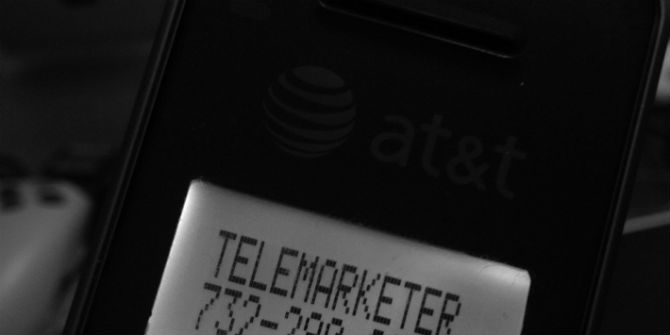 The next European Parliament elections are due to be held in late May 2019. Among fears of a populist wave and of foreign interference, the European Commission has been looking at potential options for regulation of online political advertising and disinformation. Sofia Karttunen, European Affairs Officer at the European Association of Communication Agencies, looks here at different ways to approach the regulation of political advertising online. For more on online political communication, please see the work of our Truth, Trust and Technology Commission.
The next European Parliament elections are due to be held in late May 2019. Among fears of a populist wave and of foreign interference, the European Commission has been looking at potential options for regulation of online political advertising and disinformation. Sofia Karttunen, European Affairs Officer at the European Association of Communication Agencies, looks here at different ways to approach the regulation of political advertising online. For more on online political communication, please see the work of our Truth, Trust and Technology Commission.
The way in which political advertising can be lawfully done in Europe varies largely between states. On the one hand, several countries have detailed legislation on advertising by political figures and parties, while on the other, some countries have next to no rules in place, or only those targeting certain types of media, such as TV or radio. This fragmentation may be explained by the diversity of national political and cultural traditions, and the specifics of the local media landscapes.
A common factor among all European countries, however, is a total lack of or very limited existing regulation of online campaigning. At the same time, political influence campaigns have started drifting more and more towards digital, in line with general market trends. Considering this media evolution and the changing nature of the public’s consumption of information, the rules concerning online political advertising are lagging behind.
Despite all the diversities in national systems, there appears to be a consensus at the EU-level that something collective needs to be done. The discussion around political advertising online is heating up in Brussels not least because of the scandalous EU referendum campaigns preceding the Brexit vote in 2016, or the high stakes concerning the looming European Parliament elections in May 2019. European decision-makers are particularly concerned about the unfair coverage of some political candidates, transparency, and influence from foreign actors, which are aimed at distorting elections.
The way the regulation of political online advertising has been approached so far can be divided into a few different areas:
Data protection
The first area of regulation is data protection. The General Data Protection Regulation (GDPR), which came into force in May 2018, applies throughout the EU (and indirectly even beyond), alleviating some of the concerns related to online targeting and profiling. It stipulates, for example, that companies need to obtain people’s explicit consent in order to process their data disclosing their political opinions, at the risk of high financial sanctions. In a newly proposed legislative amendment, EU legislators would also like to extend the possibility of sanctions to European political parties that receive funding for their activities from the Union.
Fake news
Another part of the equation at hand is the problem of ‘fake news’ or ‘online disinformation’, which the European Commission describes as ‘verifiably false or misleading information that is created, presented and disseminated for economic gain or to intentionally deceive the public and may cause public harm’. One point here has been the capacity of online advertising platforms to finance the dissemination of false information. In April 2018, the Commission called upon social media and the advertising industry in Europe to draw up a Code of practice on online disinformation. The implementation of the Code is intended, among other things, to increase transparency around political advertising online and ensure that citizens understand why they have been targeted by specific advertisements. The final code is expected to be released shortly, on 26 September 2018.
The Commission’s approach here is a self-regulatory one, giving the relevant companies an opportunity to draw up more commitments, subject to public scrutiny from publishers and media owners. The Commission has articulated that should these non-binding measures not work, there is a threat of legislative action being taken at a later course (although, as a side note, it might not be in the best interests of several mainstream European political parties that are still spending considerable sums on advertising and promotion on e.g. Facebook).
Disclosure requirements
The third component is the Commission’s recently published recommendation paper which is addressed at EU member states, European and national political parties, foundations, and campaign organisations. It encourages them to make sure that their paid online advertisements and communications are easily recognisable with information about who is behind these ads and the targeting criteria used, without imposing any legal obligations. Like the Code of practice on online disinformation, this measure uses a ‘soft’, non-legislative approach, allowing the countries to decide for themselves.
Introducing any hard legislation concerning disclosure obligations will require more political pressure and stronger reasons for unified rules to be adopted at the EU-level. The Europeans have surely been looking to their counter-parts in the United States, who have been struggling to pass a similar measure. Last year, the U.S. Senate proposed a bill (‘Honest Ads Act’), which seeks to extend the disclosure requirement of who has paid for political ads from traditional media to the online environment. In addition, companies would have to provide information of the targeted audiences, the cost of the advertisements and to make all reasonable efforts to ensure that ads are no purchased by foreign countries. The bill has proved very controversial and seems unlikely to pass before the next midterm elections or even in the foreseeable future.
On the other hand, while the federal bill has not yet passed, a similar law has been adopted at a smaller scale – at state-level in Washington. As a response, major social media companies Google, Facebook and Twitter have started providing more information about the buyers of election ads even at a US-wide and global level.
Multi-sided issue
There is certainly a certain level of momentum for introducing more transparency around political adverts in Europe. However, regulatory options comprise various components and given the ‘soft’ and tentative approach that has been adopted with regard to some of the components, fragmentation between countries is likely to continue.
In order to preserve unbiased elections, it is important to take a holistic view and not look at advertising in isolation but also consider, for example, the role of social media and the order in which different user-generated content appears. Perhaps it would be time for European regulators to take a closer look at the algorithms of social media platforms, which determine which content is displayed to which person and run the risk of creating so-called ‘echo-chambers’ and ‘filter bubbles’ that can amplify certain communications over others. Although not advertising as such, social media is used deliver messages and can create social and behavioural change.
The EU is grappling the issue of political online advertising primarily because of the urgency of next year’s European Parliament elections. The Union has witnessed and sought to resist a number of Eurosceptic movements over the last few years and undoubtedly would like to ensure that people will not be misled or inappropriately influenced when it is time to formulate the political direction for the next five years. The dissemination of political information needs to be fair and balanced, enabling people to make sound judgments. This should be ensured in a reasonable manner together with the industry in the context of their corporate social responsibilities and a shared mission of realising one of the basic foundations of democratic societies – fair elections.
This article gives the views of the author and does not represent the position of the LSE Media Policy Project blog, nor of the London School of Economics and Political Science.






1 Comments